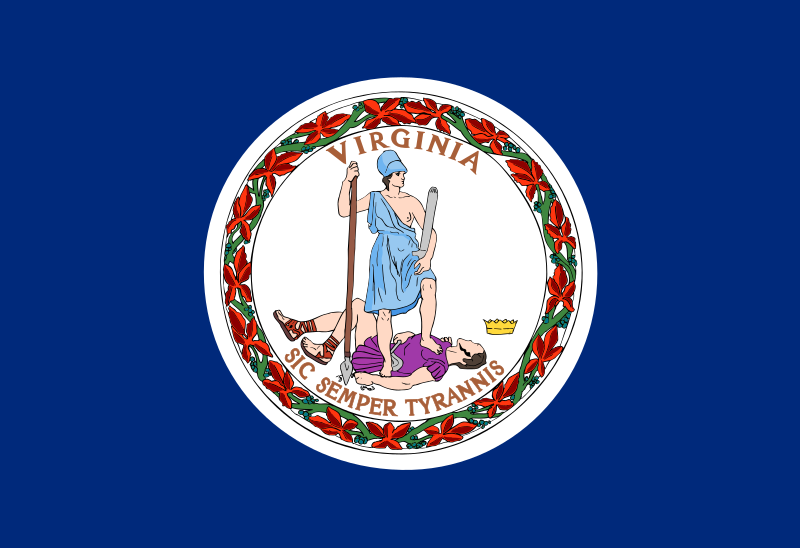Hello from GRID Mid-Atlantic! This is the August edition of the GRID Alternatives Mid-Atlantic Policy Roundup, keeping you up-to-date on renewable energy policy in the Mid-Atlantic region and beyond. This month’s edition includes promising updates around equitable and inclusive renewable energy policy.
*
*
*
DC 
DC Green Finance Authority (Green Bank) Board sworn in at first meeting on July 25
D.C. Mayor Muriel Bowser approved the formation of the DC Green Bank on July 10, 2018. The Low-Income Solar Policy Guide, a joint project led by GRID Alternatives and Vote Solar, notes that green banks hold significant potential to expand access to affordable financing for low-income communities and the projects that serve them. They can offer credit enhancement mechanisms, such as loan guarantees or loan-loss reserve, and other low-cost financing options that traditional financial institutions generally do not offer.
GRID was pleased that in its first meeting, the DC Green Bank board specifically mentioned prioritizing access-to-capital for low- to moderate-income residents as a core measure for long-term success. The DC Green Bank will also work closely with the Department of Energy and Environment’s Solar For All program, which aims to bring the benefits of solar energy to 100,000 low- to moderate-income families in the District of Columbia.
City government takes steps to curb housing costs
The DC Office of Planning (OP) and the Department of Housing and Community Development (DHCD) are partnering to create the Housing Framework for Equity and Growth in order to ensure residents can live in the city without being burdened by housing costs. The Housing Framework is an analysis directed by the Mayor’s Order on Housing to examine challenges, barriers, and opportunities for achieving the Mayor’s goal of producing 36,000 new residential units by 2025. GRID Mid-Atlantic urges OP and DHCD to prioritize renewable energy and energy efficiency in the Housing Framework as important contributors to affordability and equity.
Busboys and Poets founder and CEO Andy Shallal, who will be honored as a champion of workforce diversity at GRID Mid-Atlantic’s Solar Soirée on Sept. 19, has encouraged the city to partner with local businesses to maintain rent controls and provide tax incentives in neighborhoods where housing costs continue to climb. Local solar businesses can be an important force for housing affordability and local economic development without displacement, especially with more attention given to expanding entrepreneurial opportunities in renewable energy for minority- and women-owned businesses.
Public Service Commission releases proposed opinion on future grid modernization
In a report published on Aug. 2, the Public Service Commission (PSC) announced the next phase of grid modernization will be called PowerPath DC, a change from the previous name MEDSIS (“Modernizing the Energy Delivery System for Increased Sustainability”).
At multiple points, the forward-looking report cited GRID Mid-Atlantic’s comments that urged for ongoing grid modernization to prioritize low- and moderate-income residents. The PSC ultimately approved a recommendation from the Customer Impact Working Group to enhance customer participation in a low-income program. It also directed the Office of Consumer Services to “submit an Action Plan, including additional actionable recommendations, on how to enhance customer participation in low-income programs in the District within 90 days.”
Washington Metropolitan Area Transit Authority (WMATA) planning to install canopy solar panels on surface and garage parking lots at four Metro stations
The organization announced on July 17 that the proposed solar installations at Anacostia, Cheverly, Naylor Road, and Southern Avenue stations will generate 15,000,000 kilowatt-hours of renewable energy annually, enough to power 1,500 single-family homes for a year. The panels will be owned, operated, installed and maintained by a solar energy provider at no cost to Metro or taxpayers. WMATA will give preference to project designs, such as community solar, that maximize opportunities for low- and moderate-income households to benefit.
MARYLAND 
Transportation planning in Baltimore and throughout Mid-Atlantic should prioritize underserved communities
In an op-ed in the Baltimore Sun, National Director of Green for All Michelle Romero and President of the Baltimore Transit Equity Coalition Samuel Jordan urged transportation policy in Mid-Atlantic states to “prioritize investment dollars to benefit underserved and overburdened neighborhoods.”
GRID Alternatives has launched a new Clean Mobility initiative to make electric vehicles more accessible to the communities we serve by pairing them with solar. This effort is initially focused on California, and we are working to expand the model to the Mid-Atlantic region in the future.
Fair Development Roundtable outlines priorities for Baltimore’s Affordable Housing Trust Fund
The City recently signed an agreement with the Roundtable and the Community Development Network committing a dedicated revenue source to the Trust Fund that will reach approximately $20 million annually by 2023.
“The [Roundtable] emphasized that the fund needs to strive for racial equity, permanent affordability, and community control of land and development,” according to a story by Next City. Accordingly, the group urges the Department of Housing and Community Development to score applications for funding to support affordable housing development based on targets for local hiring, minority participation, deep affordability, and environmental sustainability, including renewable energy and energy efficiency.
VIRGINIA 
Fairfax County plans a historic solar buy
The county announced in June it was seeking proposals to install solar at up to 130 county-owned facilities and schools, with another 100 sites to be considered for a later round — enough to triple the amount of solar currently installed in Northern Virginia.
The region’s solar industry is asking the State Corporation Commission to intervene, since a state law puts a cap on the amount of third-party power purchase agreements (PPAs) in each utility’s territory. Third-party PPAs are crucial for tax-exempt entities like Fairfax County to finance on-site solar at facilities that serve all members of the community. (GRID Mid-Atlantic uses a third-party ownership model to enable its residential installations to have no upfront cost to the residents.)
Arlington County considering 100% clean electricity mandate, with increased focus on energy equity
The County is currently in the process of updating its Community Energy Plan (CEP), which was originally created in 2013. The 2019 plan features a goal of 100 percent renewable energy by 2035, leading to an ultimate goal of carbon neutrality by 2050.
Another major change includes the “addition of Equity as a focus area to inform design, investment, and implementation of the CEP.” The County states that the CEP’s focus on energy equity “provides a suite of diverse benefits that … are especially valuable to underserved populations, low-to-moderate income and/or disadvantaged communities, seniors, and the chronically ill or health-vulnerable.”
DELAWARE 
Delaware will use $2.6 million federal grant to purchase zero-emission transit buses
The new fleet of electric buses will include amenity upgrades, including an automatic wheelchair-securing feature, to encourage more people to take public transportation and reduce their carbon footprint. This change also makes it possible for more low- and moderate-income residents to travel using clean and renewable energy through public transit.
NATIONAL 
Sen. Harris, Rep. Ocasio-Cortez release Climate Equity Act draft bill
The bill, which was made public on July 29, would require the Congressional Budget Office to evaluate how new environmental bills would impact frontline communities, including low-income communities, indigenous communities, and communities of color. It would also require a new Office of Climate and Environmental Accountability, within the EPA, to do similar evaluations for significant executive branch actions and programs. Agencies’ compliance would be reviewable through citizen lawsuits. Community leaders will have an opportunity to provide feedback on the proposal before it is formally introduced this fall.

